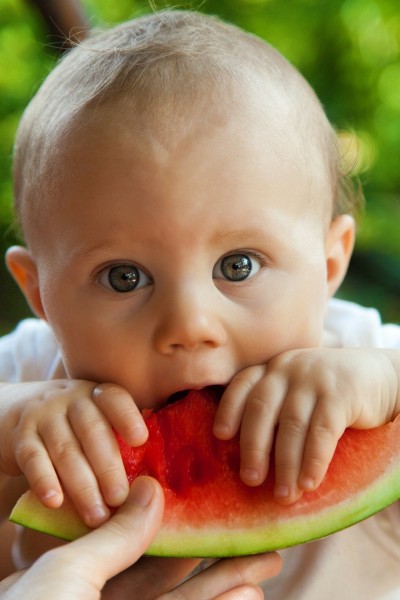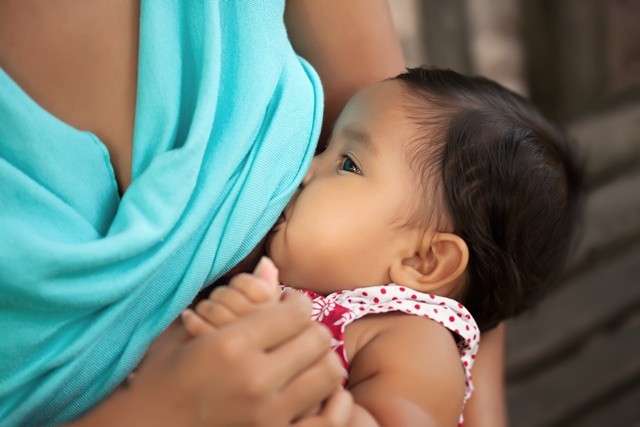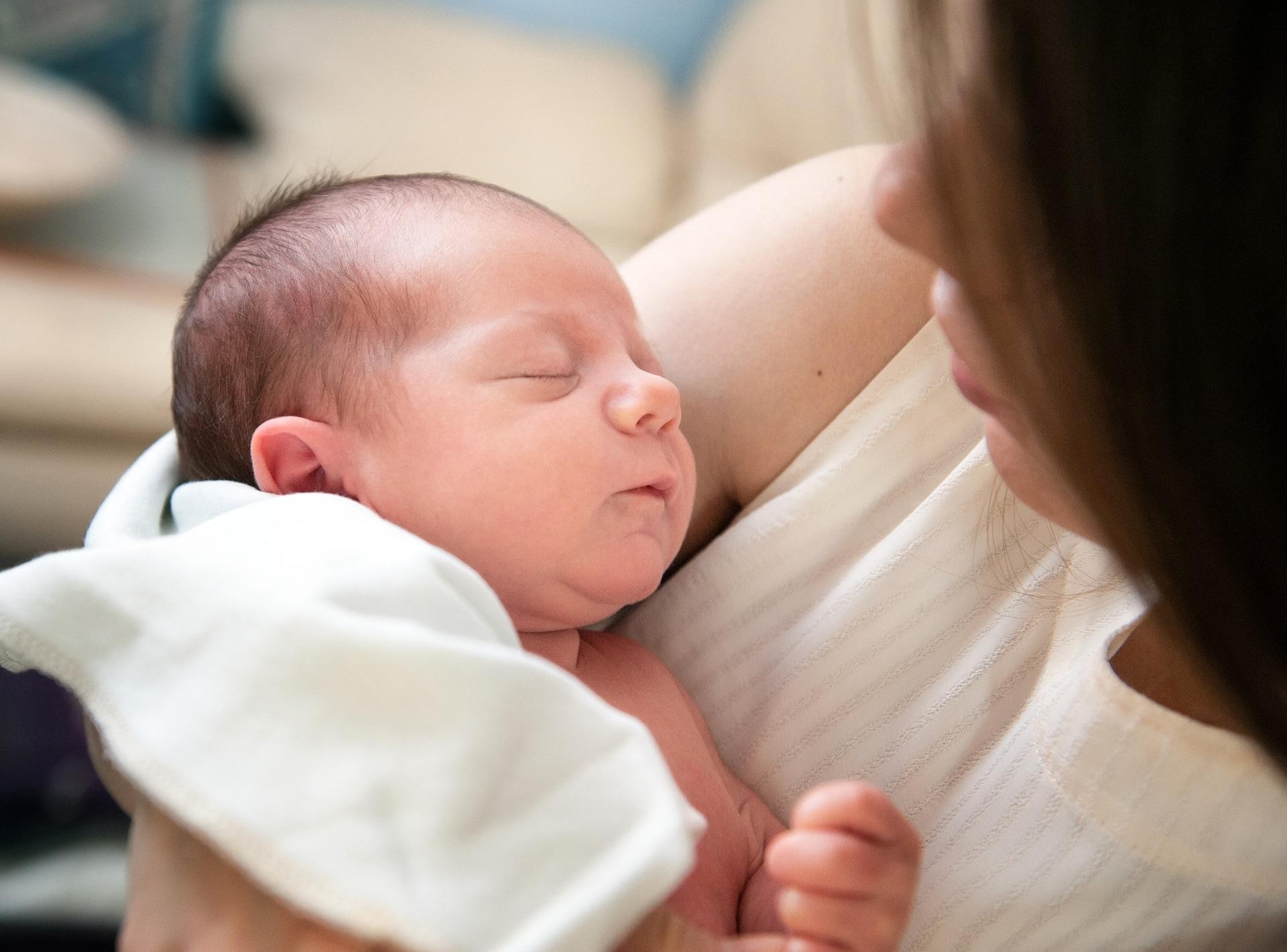The Baby Led Weaning provides further information on moving on to solid foods.
You should start giving your baby solid foods often called 'weaning' when they are around six months old. The latest research from the World Health Organisation shows before this time your baby's digestive system is not developed enough to cope with solid foods. Feeding your baby before six months of age could lead to diarrhoea and vomiting.
If you are breastfeeding , feeding only breast milk up to six months will give your baby extra protection against infection. Breastfeeding beyond six months alongside solid foods, will continue to protect your baby for as long as you carry on.
If you are bottle feeding, you should give your baby infant formula until around six months and continue it afterwards along with solid foods.
If your baby seems hungrier before the age of six months, give them extra milk feeds.
Premature babies may be ready for solids at different times. Ask your Health Professional for advice on what is best for your baby.
Signs that your baby is ready for solids
Every baby is different but there are three clear signs which, together show that your baby is ready for some solid foods alongside your breast milk or Infant Formula. It is very rare for these signs to appear together before six months.
- They stay in a sitting position and hold their head steady.
- They coordinate their eyes, hand and mouth so that they can look at the food, pick it up and put in their mouth all by themselves.
- They can swallow food. Babies who are not ready will push their food back out.
Signs mistaken for a baby being ready for solid foods
- Chewing of fists
- They wake in the night when they have previously slept through
- They want extra milk feeds
These are normal behaviours and not necessarily a sign of hunger, nor being ready to start solid food. Starting solid foods won't make them any more likely to sleep through. Extra feeds of milk are usually enough until they're ready for other food.
To begin with, how much your baby eats is less important than getting them used to the idea of eating. They will still be getting their nutrition from breast milk or Infant Formula. Babies don't need three meals to start with, so you can start by offering foods at a time that suits you both. Be prepared for some mess. As well as experiencing different tastes and textures , they're learning that food doesn't come in a continuous flow. Gradually, you'll be able to increase the amount and variety of food your baby eats until they can eventually eat the same as the rest of the family, in smaller portions. When starting remember to let your baby enjoy touching and holding the food
- Always stay with your baby when they are eating in case they start to choke
- Allow your baby to feed themselves, using their fingers as soon as they show an interest
- Don't force your baby - wait until next time if they're not interested this time
- Wait for your baby to open their mouth before you offer the food, if you're using a spoon. Your baby may like to hold a spoon too
- Start by offering just a few pieces or teaspoons of food once a day
- Allow hot food to cool and test it before giving it to your baby
Finger Foods

- Cooked and cooled broccoli or cauliflower florets, green beans, carrot or courgette sticks
- Cubes of cheese
- Fingers of toast, bread crusts, pitta bread or chapati
- Rice cakes
- Cooked pasta shapes
- Pieces of peeled raw apple (large enough for your baby to gnaw on) peach, pear, melon or banana
It is best to avoid sweet biscuits and rusks so that your baby doesn’t get into the habit of experiencing sweet snacks.
Foods to avoid
There are some foods that you should not give your baby until they are much older, such as:
- salt
- sugar
- honey
- raw shellfish
- whole nuts

From about nine months you will find that, as your baby eats more solid foods, the amount of milk your baby wants will start to reduce. Once your baby is eating plenty of solids several times a day, you can drop a milk feed but continue to breastfeed or give 500–600ml (about a pint) of infant formula a day until at least 12 months of age. Breastfeeding will continue to benefit you and your baby for as long as you choose to carry on. Cow’s milk is not suitable as a drink until your baby is 12 months old but can be used in cooking.
Vitamin D is naturally present in only a few foods such as fortified margarines, eggs and fatty fish. It is also made naturally in the skin when it is exposed to gentle sunlight. It is sensible to give all children vitamin drops with vitamins A, C and D from the age of one to five years old. Breastfed babies, and babies drinking less than 500ml of infant formula milk per day, should begin vitamin D drops at birth. Ask your health visitor about Healthy Start children’s vitamin drops.
Breastfeeding mothers should consider taking a Vitamin D supplement.
Resources:
- toast, pitta or chapati fingers, bread sticks, rice cakes
- choose low-salt or salt-free versions whenever possible
- pieces of chopped fruit or vegetable sticks
- small cubes of cheese.
If your baby is a fussy eater, here are some things you can do to help.
- Praise your baby when they eat well and don’t get frustrated or angry if your baby doesn’t eat
- Don’t worry if your baby doesn’t like certain foods – simply leave it for now and try them again in a week or so -babies like familiar foods and sometimes you need to offer a food more than 10 times before your baby will try it
- Set a good example and let your baby see you eating and enjoying a variety of foods
- Don’t worry if your baby doesn’t eat much one day. Appetites vary and what your baby eats over the course of a week is more important



